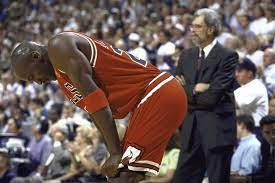Mental Mistakes in Preparing For A Basketball Game
Coach Bob Knight was once quoted to have said in concern to the game of basketball “The mental is to the physical as 4 is to 1.” Coach Knight is usually correct about what he says when it comes to basketball and this is certainly one instance where I agree with Coach Knight.
This post is about a pair of common mental mistakes athletes make before the game when preparing mentally. These two mistakes are both related to control issues that focus on outcomes and not performance.
First Common Mistake IN Basketball
The first common mistake is for a player to worry too much about the outcome of the game. As an example, let’s say the game in question is a district game against an opponent who consistently scores a lot of points. The combined pressure of the need to win the game to advance up the district standings combined with the fear of embarrassment by being blown out.
The increased level of anxiety over these two possible outcomes can lead to a decrease in player confidence and combined with the higher-than-normal level of anxiety can lead to a horrendous performance. The focus on the outcome of the game instead of playing well leads to the very thing the player feared, a loss as a resulting lopsided blowout.
second common mistake in Basketball
The second common mistake is establishing a predetermined or preset level of expectations about the level of performance required for success. Players may tell themselves “I am going to go 10-12 tonight and grab 15 rebounds.” Teams may tell themselves the only way they can win is to hold the high-scoring team to under 40 points.
The opponent is going to have a say in both of those predetermined levels of performance. The opponent may fiercely contest every shot the player who established an acceptable level of performance as making 10 out of 12 shots. The result of the opponent’s defensive efforts might be a 5 for 12 shooting night. Not fantastic but not too bad either.
Because the player in question set such a high standard of excellence, there will in all likelihood be a drop in confidence in shooting as the game progresses. Late in the game, the now-rattled player may not have enough confidence to hit the “big shot” for his or her team.
The team that thinks it can only win if it holds the high-scoring opponent under 40 points (and the opponent averages 85+ in this example) is doomed to collapse mentally the closer the high-scoring opponent gets to reaching the 40-point scoring mark. Should the opponent hit that mark mid-way through the third period, the team who set that mark will likely simply collapse, allowing the high-scoring team to blow them out.
Taking a different approach mentally would serve both the player and the team better.
The player should focus on taking good shots and working hard to get open for good shots. This mental approach factors in the opponent’s likely efforts to contest shots. The shooting performance now is not about a specific field goal percentage but is focused on obtaining good open shots, a much more productive mental approach.
The team playing the run-and-gun opponent should set as its goal one of disrupting the fast break of the opponent. Working to keep the overall tempo under control and limiting the total amount of time the uptempo opponent can get its running game wound up is more productive than setting a specific outcome goal of holding the run-and-gun team to 40 points. Holding a team that scores 85 points a game to 65 points is much more realistic and possible to achieve. It is also more likely to result in a win.
Addressing the correct mental approach necessary when preparing is essential. It is also a tough task for many basketball coaches. Players need to realize mental preparation is just as important as physical preparation.

